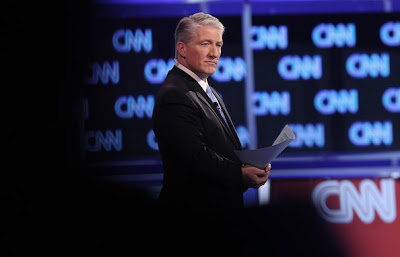There’s no fire in Romney’s belly, but Gingrich has it. It’s in his eyes too. People see it. They like it, and they don’t sense it in the other candidates either. That’s the biggest reason Gingrich won South Carolina. Conservativ es wanted someone who will take it to Obama and his media lapdogs and they know Gingrich will.
es wanted someone who will take it to Obama and his media lapdogs and they know Gingrich will.
 es wanted someone who will take it to Obama and his media lapdogs and they know Gingrich will.
es wanted someone who will take it to Obama and his media lapdogs and they know Gingrich will.
Conservatives believe media went after Gingrich because he’s conservative. They loved watching him give it back. They believe Obama gets a pass - and he’s our president only because media have worshiped him since he spoke at the 2004 Democratic convention. They believe media look for dirt on conservative candidates but turn a blind eye when it comes to liberal Democrats. When they’re forced to report it because new media like blogs and AM radio have been on a story for days or weeks, they’ll grudgingly put it on page 16. Gingrich gave voice to conservative anger and the base affirmed him with an overwhelming victory.

CNN's John King being lambasted by Gingrich in South Carolina
As I moved across the political spectrum from left to right over the past 25 years, I’ve become much more aware of how pronounced liberal media bias is. It seemed like brilliant insight when I was a liberal, but when I matured into middle age and life experience opened my mind to alternative viewpoints and I realized that, as Margaret Thatcher said, “The facts of life are conservative,” liberal bias became more and more obvious. Gingrich gets it and so do Republican primary voters.

Audience in South Carolina responding to Gingrich
But will a majority of the American electorate get it in November? That’s the question that haunts. Should conservative voters ignore their gut and vote for the candidate that they think most Americans will support? Or do they look for a leader who will be able to shape voter
 opinion between now and then? The late Bill Buckley, founder of modern conservatism, established the rule that Republicans should vote for the most conservative candidate with the best chance of being elected. So who should it be? The fiery one or the milquetoast one?
opinion between now and then? The late Bill Buckley, founder of modern conservatism, established the rule that Republicans should vote for the most conservative candidate with the best chance of being elected. So who should it be? The fiery one or the milquetoast one?I’ve been present for Romney speeches at least five times. Once I questioned him personally. He’s an intelligent, articulate and good-looking candidate. But he’s like a “Ken” doll. It’s as if there were a string in the back of his neck that someone pulls and he goes out and talks until it coils back in. He’s bland. He’s boring. I was in the Washington, DC audience when Romney pulled out of the 2008 race in favor of McCain. He’d been introduced by Laura Ingraham at CPAC (Conservative Political Action Conference) and she was far more interesting than Romney was. She had fire but he didn’t.
I’ve been present for about five of Gingrich’s speeches too. I’ve questioned him publicly and had a couple of short conversations with him. He’s intelligent, articulate and rather ordinary-looking, a little pudgy too. He’s also spontaneous and quick, sarcastic and insightful. He shoots from the hip and from the lip, and he’s never boring.
Romney at CPAC 2010
My encounters were all at large conservative conferences. Other speakers would be introduced and then enter stage-left to polite applause. Not Gingrich. He’d be introduced in the usual way, but then the sound system would start blaring “Eye of the Tiger” while he entered from the back of the hall with an entourage as if he were the heavyweight champion of the world. He’d be smiling and shaking hands with people in the aisles as he approached the podium - the way presidents do when entering the House chamber to deliver State of the Union speeches. By the time Gingrich got up to the dais, the crowd was his. Even after such a build-up, he never disappointed when he spoke. This guy can rally the troops. South Carolina wasn’t a fluke.

"Rocky" Gingrich approaching the dais at CPAC 2009
But can he do that with independents? I think he can. He’s a history teacher. He can educate people about what Obama, Congressional Democrats, and their media lackeys have done to this country and that’s exactly what he must do with independents. He’ll have to go after Obama with gloves off, and go after the media too because they’re just as much the enemy as Obama is. We know they’re both going to go after him. The media already have. Obama will do his dirty work vicariously and he’ll have a billion dollars. That buys a lot of hatchetmen.
Gingrich as professor
All that’s going to happen no matter who the Republicans put up because Obama cannot run on his record. We’re in the mess we’re in because of him. It’s obvious after three years that he doesn’t know how to be president, but he was good at running for it. Blaming Bush for everything won’t work so well this time, so he’s blaming “the rich” now and conservative Republicans in the House. He’s going to escalate attacks like that with his billion-dollar war chest and it’s going to be an ugly race. Republican voters must consider who is most capable of winning that kind of fight.





















